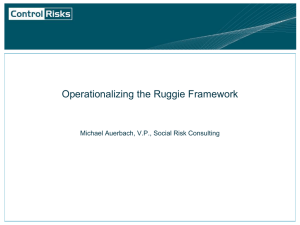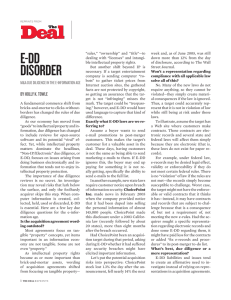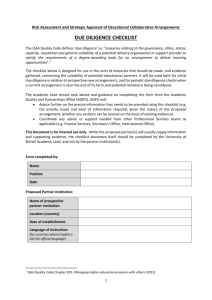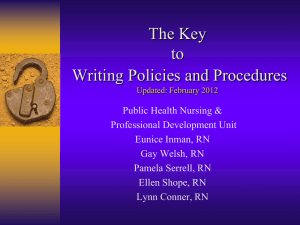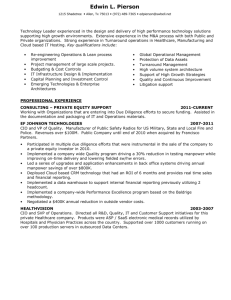Due diligence process
advertisement
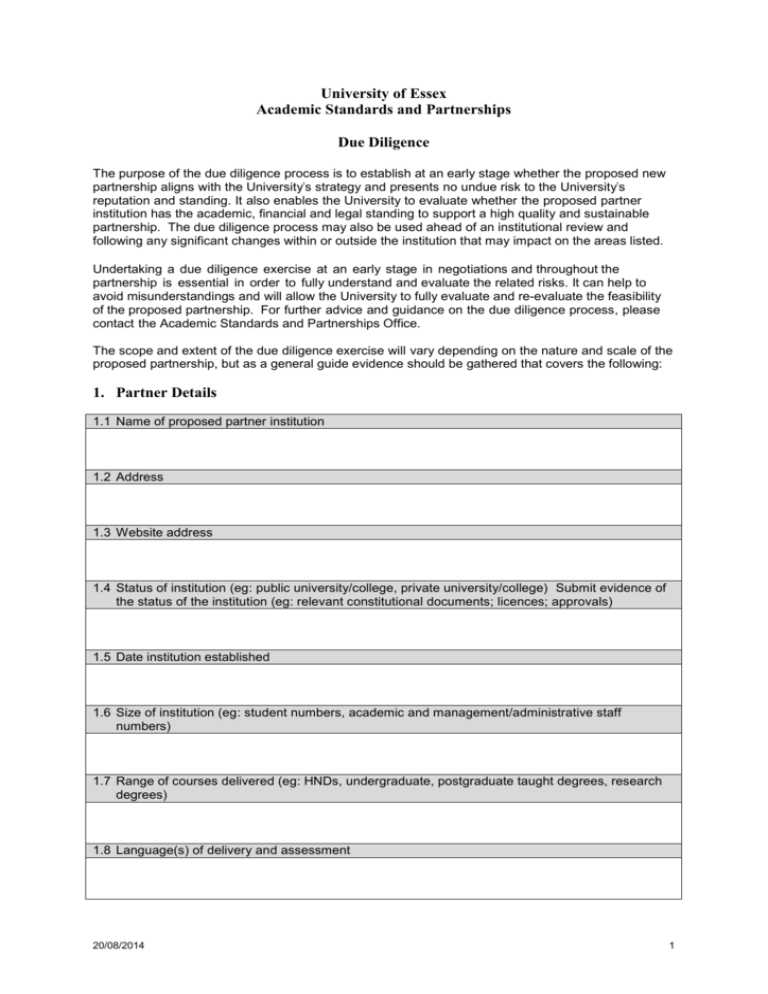
University of Essex Academic Standards and Partnerships Due Diligence The purpose of the due diligence process is to establish at an early stage whether the proposed new partnership aligns with the University’s strategy and presents no undue risk to the University’s reputation and standing. It also enables the University to evaluate whether the proposed partner institution has the academic, financial and legal standing to support a high quality and sustainable partnership. The due diligence process may also be used ahead of an institutional review and following any significant changes within or outside the institution that may impact on the areas listed. Undertaking a due diligence exercise at an early stage in negotiations and throughout the partnership is essential in order to fully understand and evaluate the related risks. It can help to avoid misunderstandings and will allow the University to fully evaluate and re-evaluate the feasibility of the proposed partnership. For further advice and guidance on the due diligence process, please contact the Academic Standards and Partnerships Office. The scope and extent of the due diligence exercise will vary depending on the nature and scale of the proposed partnership, but as a general guide evidence should be gathered that covers the following: 1. Partner Details 1.1 Name of proposed partner institution 1.2 Address 1.3 Website address 1.4 Status of institution (eg: public university/college, private university/college) Submit evidence of the status of the institution (eg: relevant constitutional documents; licences; approvals) 1.5 Date institution established 1.6 Size of institution (eg: student numbers, academic and management/administrative staff numbers) 1.7 Range of courses delivered (eg: HNDs, undergraduate, postgraduate taught degrees, research degrees) 1.8 Language(s) of delivery and assessment 20/08/2014 1 2. Academic Background Potential sources of evidence: Institution’s standing in national and international league tables External audit/review reports Advice from relevant national government offices and agencies and UK bodies with a presence in the country (e.g. the British Council, UK NARIC and UK government offices) Proposed partner’s mission statement, strategic plan; partner website, partner prospectus Details of internal management structures, key committees and relevant policies and procedures Sample student handbooks 2.1 What is the academic standing of the proposed partner institution? Is it comparable to the University of Essex? 2.2 Does the proposed partnership align with the University’s strategy? 2.3 Does the proposed partner institution have experience in delivering courses at a similar level? 2.4 What will be the language of delivery and assessment under the proposed arrangement? 2.5 Is the institution familiar with UK quality assurance requirements? 2.6 How does the institution manage quality and standards? 2.7 Where relevant, does the proposed partner own the necessary intellectual property, or should licences be obtained from third parties? 20/08/2014 2 3. Financial Standing Potential sources of evidence: Audited financial accounts and annual reports for the last 3-5 years Details of any state or public sector funding applicable to the organisation Details of any relevant grants, subsidies, payments or allowances taken out or granted by the institution in relation to the proposed partnership Partner prospectus/website Staff numbers Reports on facilities Visits to the proposed partner by members of the University 3.1 Does the proposed partner institution have the financial means to carry out its obligations under the partnership arrangement? 3.2 Does the proposed partner institution receive any state or public sector funding? 3.3 Does the proposed partner institution receive any other grants, subsidies, payments or allowances? 3.4 Is the institution adequately resourced, for example in terms of facilities, resources and infrastructure? 20/08/2014 3 4. Legal Status Potential sources of evidence: Copy of the constitutional documents for the proposed partner Copies of relevant permits/authorities/registrations/licences / approvals Details of the legal framework for the relevant jurisdiction Details of the organisation of education in the partner’s home country Advice from relevant national government offices and agencies and UK bodies with a presence in the country (e.g. the British Council, UK NARIC and UK government offices); local media reports Foreign and Commonwealth Office website Particulars of all relevant insurance arrangements Relevant policies and procedures Staff and student profile information Partner prospectus/website External audit/review reports (e.g. QAA reports) Liaison with other HEIs (where appropriate) 4.1 Does the proposed partner have the power/permits/licences required to collaborate with us? 4.2 Is the proposed partnership, or any courses delivered through the partnership, subject to accreditation requirements in the proposed partner’s home country (for example, is the consent of the foreign Ministry of Education required before the partnership can commence)? 4.3 Does the proposed partner institution own or lease the site/premises where courses are delivered? 4.4 Are any other local third party consents required? If so, what are the procedures and timescales for obtaining them? 4.5 Does the institution have any current, pending, threatened or possible litigation or arbitration proceedings (whether as a claimant or a defendant), any prosecution or any investigation or inquiry pending by a governmental or official body? 4.6 Is the potential partner institution aligned to a particular government or party which may be politically risky? 4.7 Are there any Foreign and Commonwealth Office concerns regarding personal safety, health and travel to the region? 4.8 Will the proposed partner institution be able to provide a safe working environment for students and staff? 20/08/2014 4 4.9 What insurance policies are in place, and are they appropriate and equivalent to maximum cover in place in the UK? 4.10 Is the institution committed to the equal treatment of all staff and students? 4.11 Does the proposed partner institution have any previous or existing collaborations with other higher education institutions? If such arrangements have recently terminated, why? 20/08/2014 5




